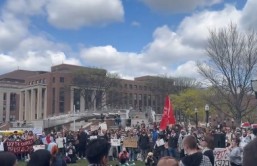Nearly 62 percent of Swiss voters on Sunday rejected a plan to move the country's all-private health insurance system to a state-run operation.
The referendum was a result of healthcare reformers obtaining the necessary 100,000 signatures needed to hold a popular vote, yet resulted in a win for Switzerland's private insurance industry.
"The Swiss population does not want a single national scheme," said the Swiss Insurance Association, according to AFP.
"Our health system is among the top performers in the world. Competition between health insurers and freedom of choice for clients play a major role in this."
The vote highlighted national divisions present in the country, with German-speaking regions voting against the plan while the French-speaking population voted in favor, reported AFP.
A similar 2007 referendum saw 71 percent of voters in opposition.
The current Swiss system, after which President Barack Obama modeled his reform, requires that all 8 million residents hold basic health insurance, and provides a choice between 61 companies.
While the Swiss healthcare system is often ranked among the best in the world, its growing costs often leave citizens frustrated.
The left-leaning parties who advocated for the bill claim that the current private healthcare system is too expensive for most citizens, with average health premium costs around $420 per adult per month, according to AFP. This doesn't include out-of-pocket spending on dental care, which is not covered by basic insurance.
According to ophthalmologist Michel Matter, over the past 20 years, healthcare costs have grown 80 percent, and insurance premiums, 125 percent.
Healthcare reform advocates believe that insurers have "too much political clout," said AFP, with research showing that 14 percent of lawmakers have links to health firms or the sector's lobby groups.
Those who support the current privatized industry argue that increasing premiums is inevitable due to an aging population and cutting-edge medical care, and say that switching to a public system would generate few savings, reported AFP.








